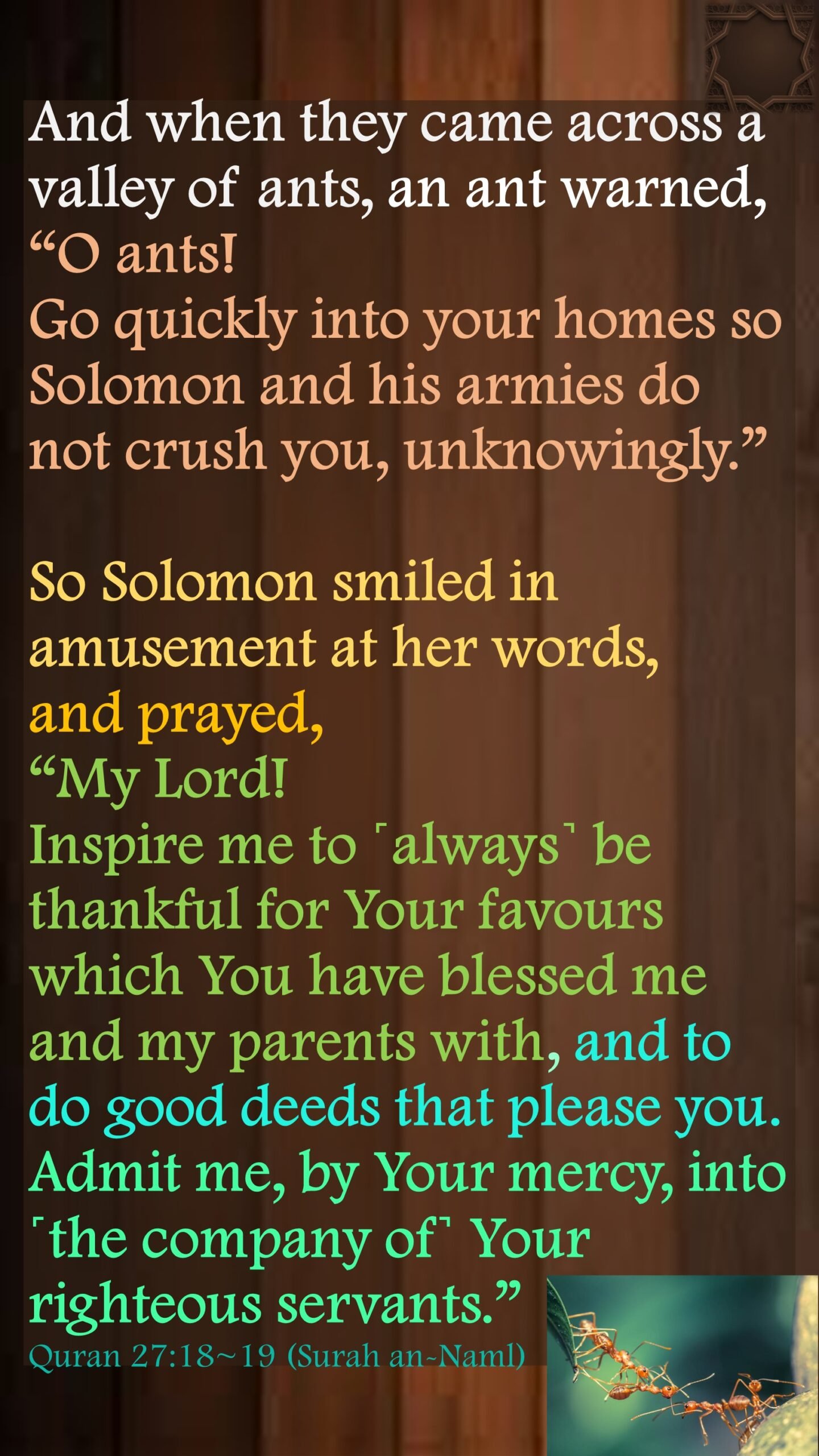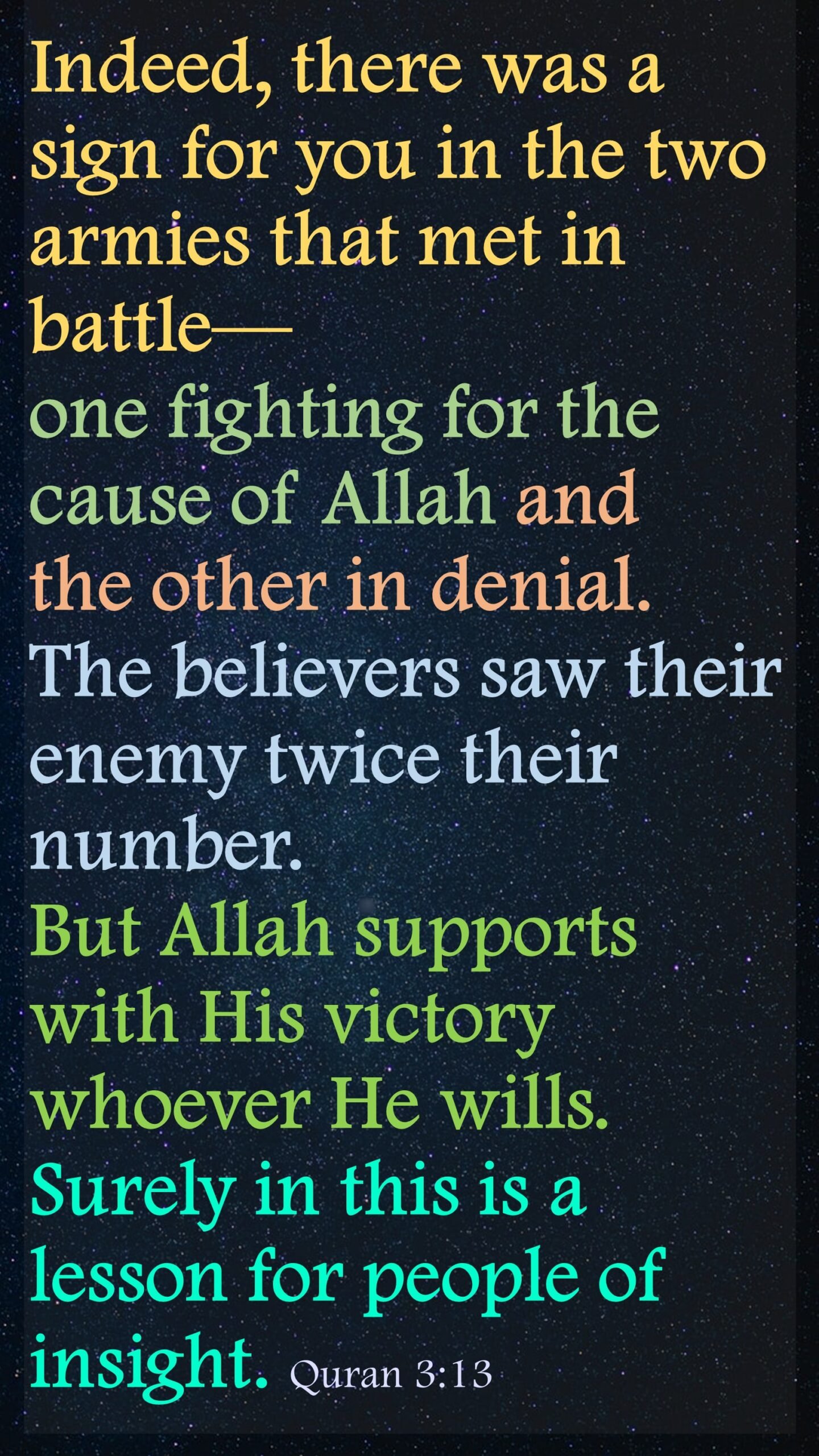Skip to Content
Tag Archives: army
- Home -
- Posts tagged "army"
1
Dec, 2023
Islam, Quran
Abraha, Allah, army, attack, ayat, daily, destroyed, elephant, foiled, inspirations, islamic, Kaaba, Muhammad, quran, Surah
8
Jul, 2023
Islam, Quran
Allah, army, Award, ayat, children of Bani Israel, cried, crop, delay, drown, earth, fate, Firoun, Firun, garden, Hazrat, Heaven, inspirations, islam, islamic, luxury, Moses, Musa, Oharaoh, other, parted, pursue, quran, residence, sea, servant, splendid, spring, Surah, torment, trangress, tyrant, wicked
7
Apr, 2023
Islam, Quran
admit, Allah, always, an-Naml, ant, army, ayat, Blessed, Chapter 27, company, crush, daily, deeds, favor, grateful, inspirations, inspire, islam, islamic, Jannat, Mercy, paradise, PBUH, please, prayer, Prophet, quran, righteous, servants, smile, Solomon, Surah, thankful, Verse 18, verse 19, you
27
Oct, 2022
Islam, Quran
Allah, army, battle, cause, chapter 3, daily, enemy, fight, insight, inspirations, islamic, lesson, quran, Surah, Verse 13, victory




